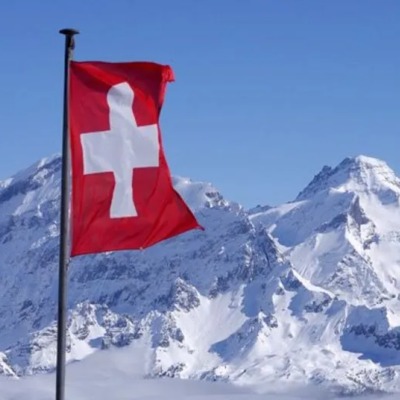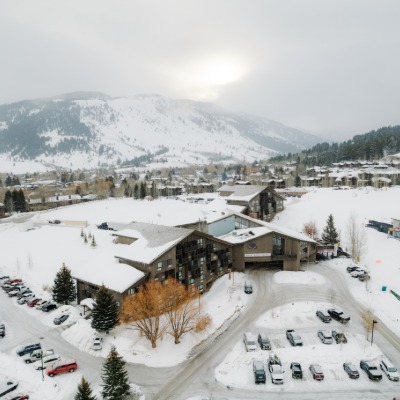Summer Delivers Stable Results For Tyrol Tourism

After five of six months of the current summer season, Tyrol's tourism industry is reporting a slight decline in overnight stays and a slight increase in guest arrivals. According to an initial calculation by MCI Tourism, value creation is also almost stable. The industry is looking forward to the coming winter season, which begins on November 1st, with confidence.
The current summer season, which ends on October 31, was not an easy one for Tyrol's tourism industry. Mixed weather periods, such as those in September, have led to a slight decline in overnight stays. The analysis of the months of May to September, which represent around 90 percent of summer overnight stays on average, shows 20.3 million overnight stays. This corresponds to a small decrease of 0.9 percent. The number of guests, however, has grown very slightly - by 0.3 percent to 5.7 million. The average length of stay has remained the same, at 3.6 days.
"We had strong demand last year and the best summer result since 1992. We are therefore satisfied that we have been able to maintain this very good result this summer," sums up State Minister for Tourism Mario Gerber. In addition, the focus on purely quantitative key figures is not enough anyway. Economic development is what is decisive. An initial calculation by MCI Tourism shows that the added value for this year's summer season amounts to 2.4 billion euros. Taking inflation into account, this means a minimal decline of 0.1 percent, which is less than the decline in overnight stays. This development is also reflected in the seasonal tourism barometer, a representative survey of Tyrolean accommodation providers. In it, 57 percent of businesses are satisfied with the economic success of the past summer season, 24 percent even say they are very satisfied. "In view of the difficult framework conditions, it is remarkable and gratifying how stable Tyrol's tourism is. The industry makes a significant contribution to prosperity and quality in our country, both economically and in terms of leisure opportunities and infrastructure,” said Gerber.
Slight declines in local markets
In terms of markets, it is primarily the local markets of Germany, Austria, Switzerland and the Netherlands that have seen a small drop in overnight stays. "The decline in the local markets is primarily due to the fact that they are the most sensitive and can react to the weather at short notice," explains Karin Seiler. "Due to the importance of these markets, which account for 80 percent of overnight stays, this naturally also influences the overall result." Specifically, overnight stays by German guests fell by 1.4 percent to 11.7 million, while the domestic market of Austria saw a drop of 2.7 percent to 2.0 million, the Netherlands a drop of 1.5 percent to 1.6 million and Switzerland a drop of 0.3 percent to 1.0 million overnight stays. The long-distance markets have seen the strongest growth, albeit at a low level: overnight stays from the USA increased by 9.9 percent to 200,000 and from China by 159 percent to 60,000.
In terms of accommodation, holiday apartments (+0.5%), four- and five-star hotels (+1.1%) and campsites (+1.9%) are the winners in terms of overnight stays.
Short-termism remains a challenge for companies
The current summer season is certainly challenging for companies, reports Alois Rainer, head of the tourism and leisure industry at the Tyrol Chamber of Commerce: "The increasing short-term nature of bookings and cancellations is causing us problems. Guests are booking in several places at the same time and then driving to where the weather is best. This makes planning for employees and resources extremely difficult." In addition, the increased costs for goods, energy and wages are also continuing to have an impact. "These cannot always be fully passed on to prices. This means that sometimes there is not enough left over at the end of the day," says Rainer. In any case, it is a balancing act to find the balance between necessary price adjustments and guests' willingness to pay.
Good booking situation for the winter
The industry is optimistic about demand for the coming winter season. "According to the tourism barometer, 76 percent of businesses have bookings that are just as good or even better than at this time last year," explains State Councilor Gerber. Winter holidays in Tyrol are particularly popular with German guests: 85 percent of businesses are registering bookings that are just as good or even better from the most important source market for Tyrolean tourism.
This assessment is also consistent with the price and booking monitoring of the Tirol Werbung, which can forecast demand on a daily basis. The forecast largely shows a similar occupancy rate to last winter. "Christmas and New Year are currently the best booked months by far, and in the most important month, February, demand is currently slightly below last year's," reports Karin Seiler.
In terms of economic expectations, companies are expecting a good winter: 57 percent expect to be able to maintain the previous year's result. 25 percent expect an increase in sales, and only 16 percent expect a loss in sales.
Division chairman Rainer is also generally optimistic about the winter. In addition to the earnings situation, however, the issue of skilled workers remains a constant issue. "The situation has now eased somewhat, but there is still a lack of numerous employees." In addition to the employer branding campaign of the Lebensraum Tirol Group, the Chamber of Commerce is relying on the Bist Happy initiative. "This allows companies to anonymously measure the satisfaction of their employees. Motivated employees not only like to stay with the company themselves, but are also the best advertisement for attracting new employees," says Rainer.
Tirol Werbung is investing around 7.3 million euros in communication measures for the coming winter and is present in eight European markets with an advertising campaign.
Guests rate Tyrol particularly positively in terms of sustainability
The great appeal of the holiday region of Tyrol is also underlined by a current evaluation by Tirol Werbung, for which more than 30,000 guest reviews on online platforms were analyzed using artificial intelligence. 85 percent of these were positive, 13 percent negative and two percent neutral. Guests' assessments of sustainability are particularly positive: 92 percent of the reviews on this topic are positive. Guests particularly frequently cite regionality and regional products as plus points.













